Why do Doctors need to Meditate?
The healthcare setting, with its demanding speed, time constraints, and emotional intensity, can put physicians and other professionals at risk of burnout. Burnout is a long-term stress reaction characterized by emotional weariness and depersonalization. The MEMO—Minimizing Error, Maximizing Outcome—Study (AHRQ grant HS11955) discovered that more than half of primary care physicians report feeling stressed due to time constraints and other job factors. The research concluded that, while physicians are affected by work conditions, their reactions do not result in inferior quality care because physicians act as buffers between the work environment and patient care.1
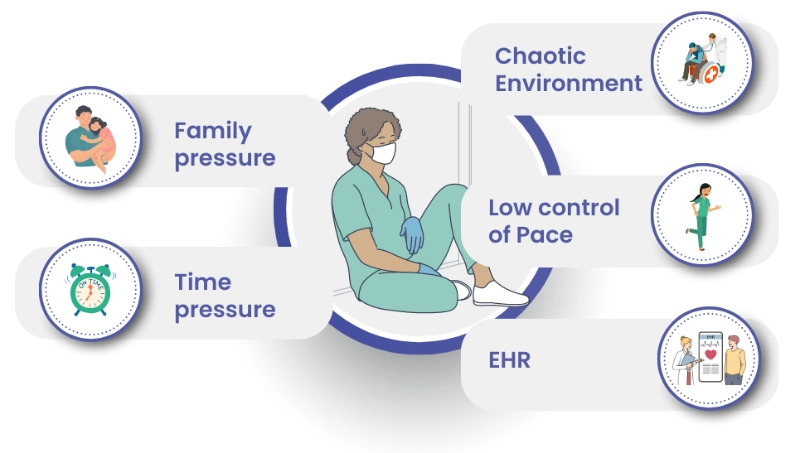
Meditation is a simple approach that can help individuals control stress, reduce anxiety, enhance cardiovascular health, and achieve a greater capacity for relaxation if practiced for just ten minutes each day. 2
Meditation is an exercise for focusing or clearing your mind that combines mental and physical techniques. Meditation has been practiced for thousands of years. However, modern science has only recently begun to investigate this practice in depth.3
A number of studies were done globally to study the impact of meditation on the stress levels of physicians and also how it affected their well-being, work life, and the doctor-patient relationship.
Let us look at one of the studies in brief4:
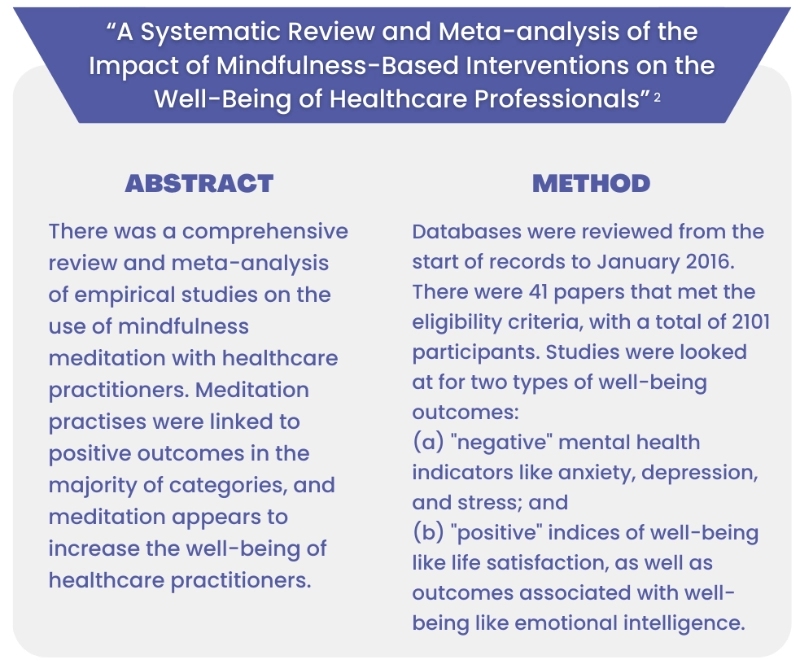
Results
The negative indices showed a considerable decrease due to meditation and the positive indices showed improvement:
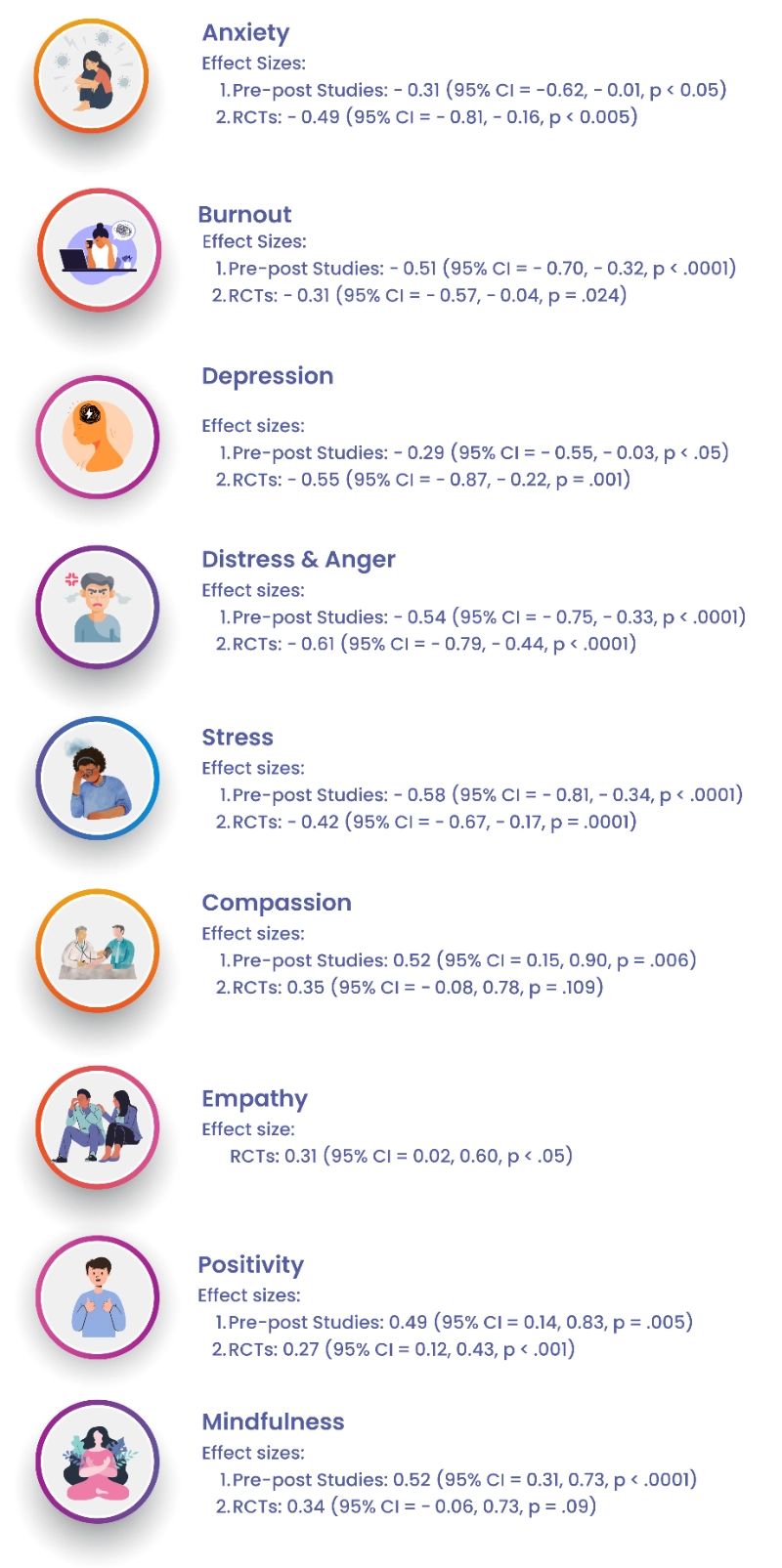
Other than the above studies which reviewed the mental health effects of meditation, few studies were also done to study the impact meditation has on the aging process.5
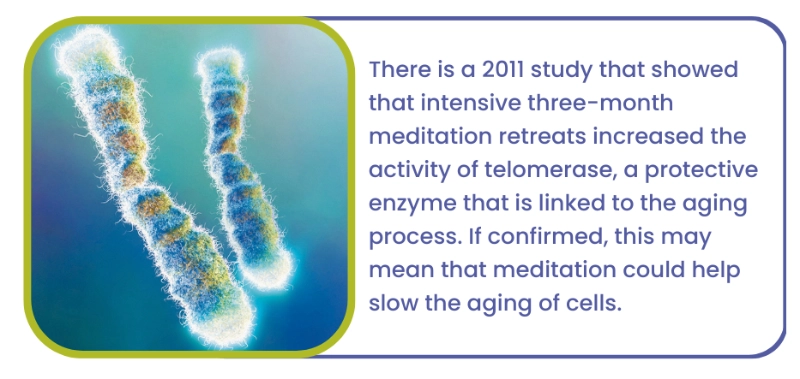
Types of Meditations:6
Due to the wide range of preferences among people, there is no one form that fits all. The ideal meditation, according to some experts, is the one that a person likes routinely practicing.
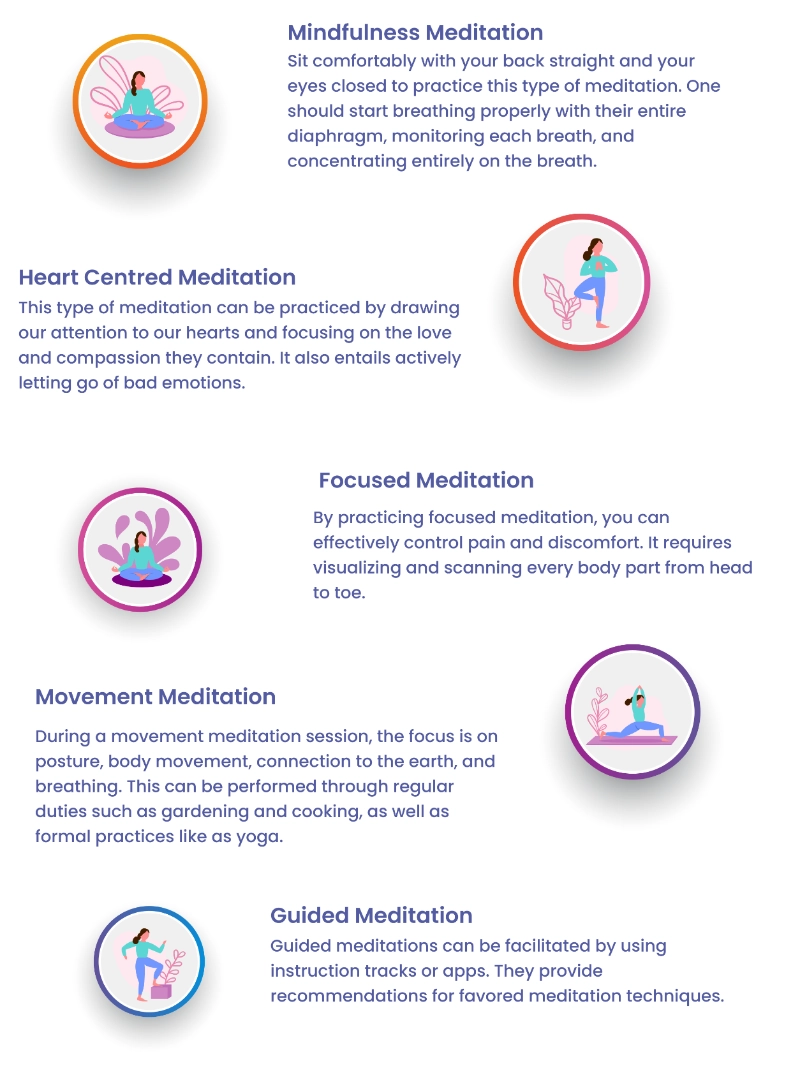
Benefits of Meditation:7
Physicians are constantly exposed to occupational stress by the nature of their profession. These stressors can lead over time to high levels of dissatisfaction and unhappiness which can then lead to burnout, both, physically & mentally. Meditation has been proven to be beneficial for a very long time for uplifting physical as well as mental health. Below we can see how meditation benefits physicians and their practice.
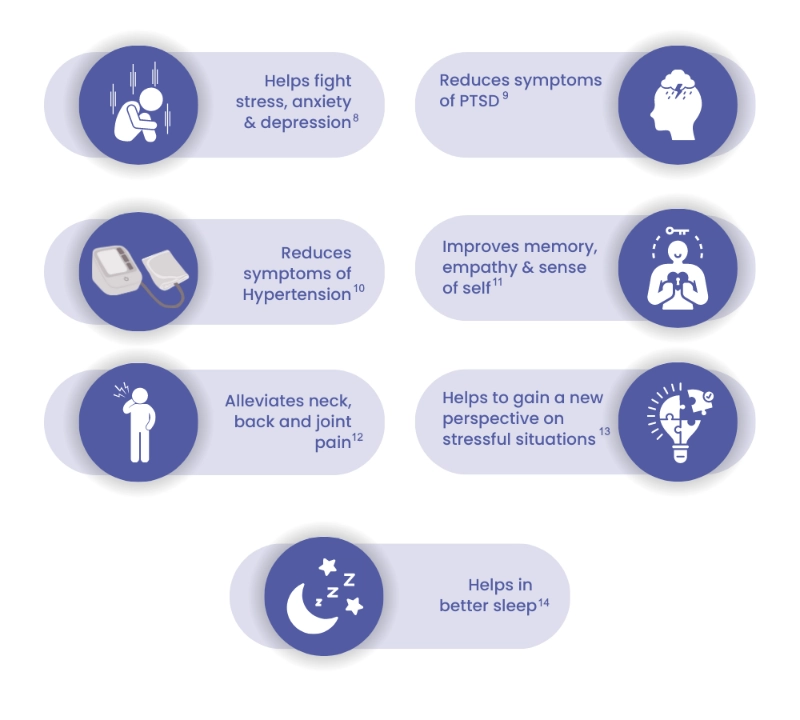
Conclusion:15
The emotional well-being and general health of doctors can benefit from meditation as it gives a sense of calm, tranquillity, and balance. Depending on the doctor's daily schedule and lifestyle, meditation can be practiced for any amount of time and by being consistent. By concentrating attention on something calming, meditation can also be utilized to unwind and manage daily stress. Learning to maintain inner serenity and focus through meditation is another added benefit.
References
- Agency for Healthcare Research and Quality. Physician Burnout [Internet]. Ahrq.gov. 2017. Available from: https://www.ahrq.gov/prevention/clinician/ahrq-works/burnout/index.html
- Meditation, Stress, and Your Health [Internet]. WebMD. Available from: https://www.webmd.com/balance/guide/meditation-natural-remedy-for-insomnia
- Cleveland Clinic. Meditation [Internet]. Cleveland Clinic. 2022. Available from: https://my.clevelandclinic.org/health/articles/17906-meditation
- Lomas T, Medina JC, Ivtzan I, Rupprecht S, Eiroa-Orosa FJ. A Systematic Review and Meta-analysis of the Impact of Mindfulness-Based Interventions on the Well-Being of Healthcare Professionals. Mindfulness. 2018 Nov 29;
- Schutte NS, Malouff JM. A meta-analytic review of the effects of mindfulness meditation on telomerase activity. Psychoneuroendocrinology [Internet]. 2014 Apr [cited 2019 Jun 5];42:45–8. Available from: https://www.sciencedirect.com/science/article/pii/S0306453013004538
- What Are the Different Types of Meditation? [Internet]. WebMD. Available from: https://www.webmd.com/balance/what-are-the-different-types-of-meditation
- Mayo Clinic Staff. A beginner’s guide to meditation [Internet]. Mayo Clinic. 2020. Available from: https://www.mayoclinic.org/tests-procedures/meditation/in-depth/meditation/art-20045858
- Khoury B, Lecomte T, Fortin G, Masse M, Therien P, Bouchard V, et al. Mindfulness-based therapy: a comprehensive meta-analysis. Clinical Psychology Review. 2013 Aug;33(6):763–71.
- Gallegos AM, Crean HF, Pigeon WR, Heffner KL. Meditation and yoga for posttraumatic stress disorder: A meta-analytic review of randomized controlled trials. Clinical Psychology Review. 2017 Dec;58:115–24.
- Levine GN, Lange RA, Bairey‐Merz CN, Davidson RJ, Jamerson K, Mehta PK, et al. Meditation and Cardiovascular Risk Reduction. Journal of the American Heart Association. 2017 Oct;6(10).
- McGreevey S. Eight weeks to a better brain [Internet]. Harvard Gazette. Harvard Gazette; 2011. Available from: https://news.harvard.edu/gazette/story/2011/01/eight-weeks-to-a-better-brain/
- Study finds mindfulness meditation offers relief for low-back pain [Internet]. National Institutes of Health (NIH). 2016. Available from: https://www.nih.gov/news-events/news-releases/study-finds-mindfulness-meditation-offers-relief-low-back-pain
- A beginner’s guide to meditation [Internet]. Mayo Clinic. [cited 2023 Mar 16]. Available from: https://www.mayoclinic.org/tests-procedures/meditation/in-depth/meditation/art-20045858#:~:text=Meditation%20and%20emotional%20and%20physical
- Corliss J. Mindfulness meditation helps fight insomnia, improves sleep - Harvard Health Blog [Internet]. Harvard Health Blog. 2015. Available from: https://www.health.harvard.edu/blog/mindfulness-meditation-helps-fight-insomnia-improves-sleep-201502187726
- Mayo Clinic Staff. A beginner’s guide to meditation [Internet]. Mayo Clinic. 2020. Available from: https://www.mayoclinic.org/tests-procedures/meditation/in-depth/meditation/art-20045858



